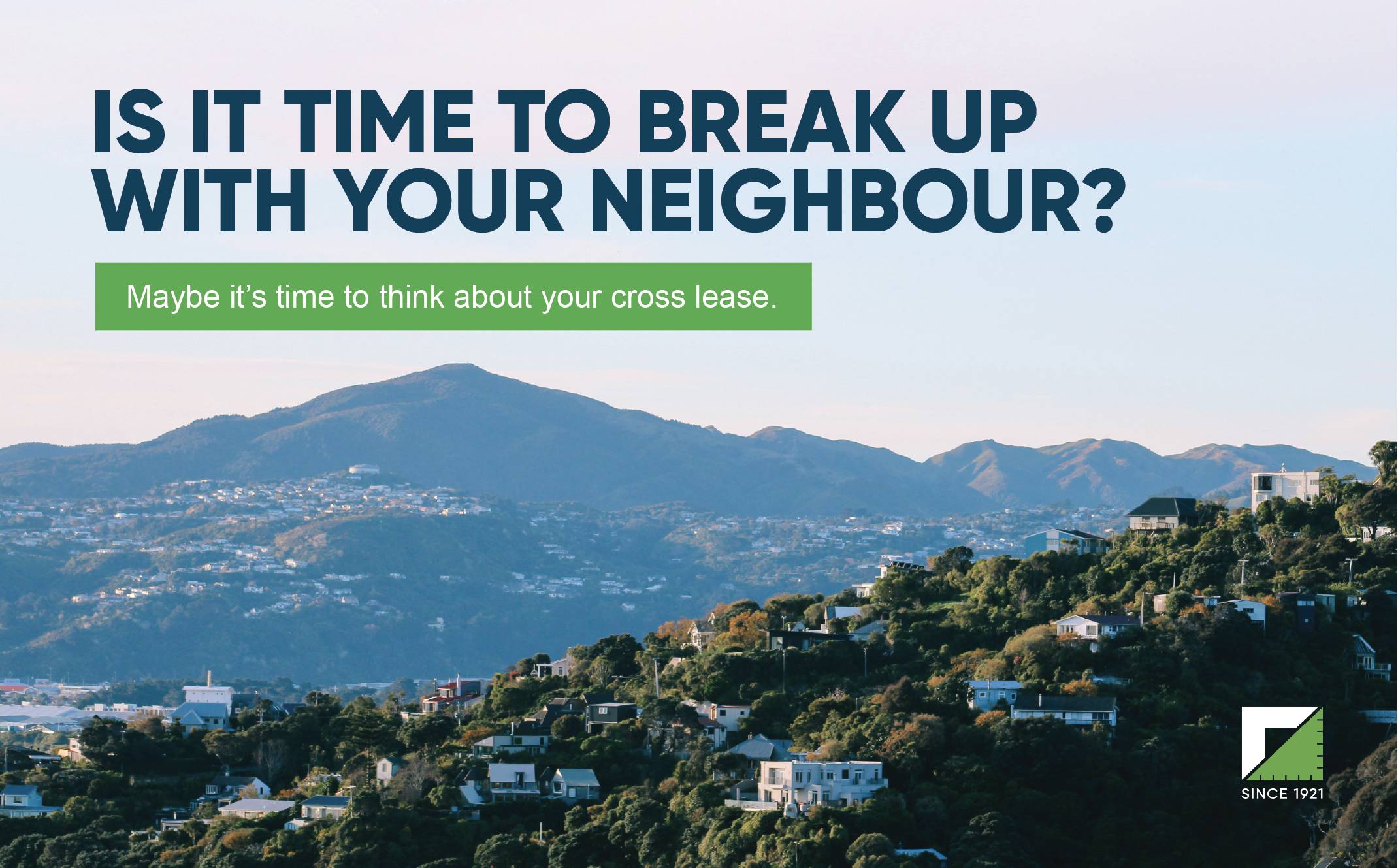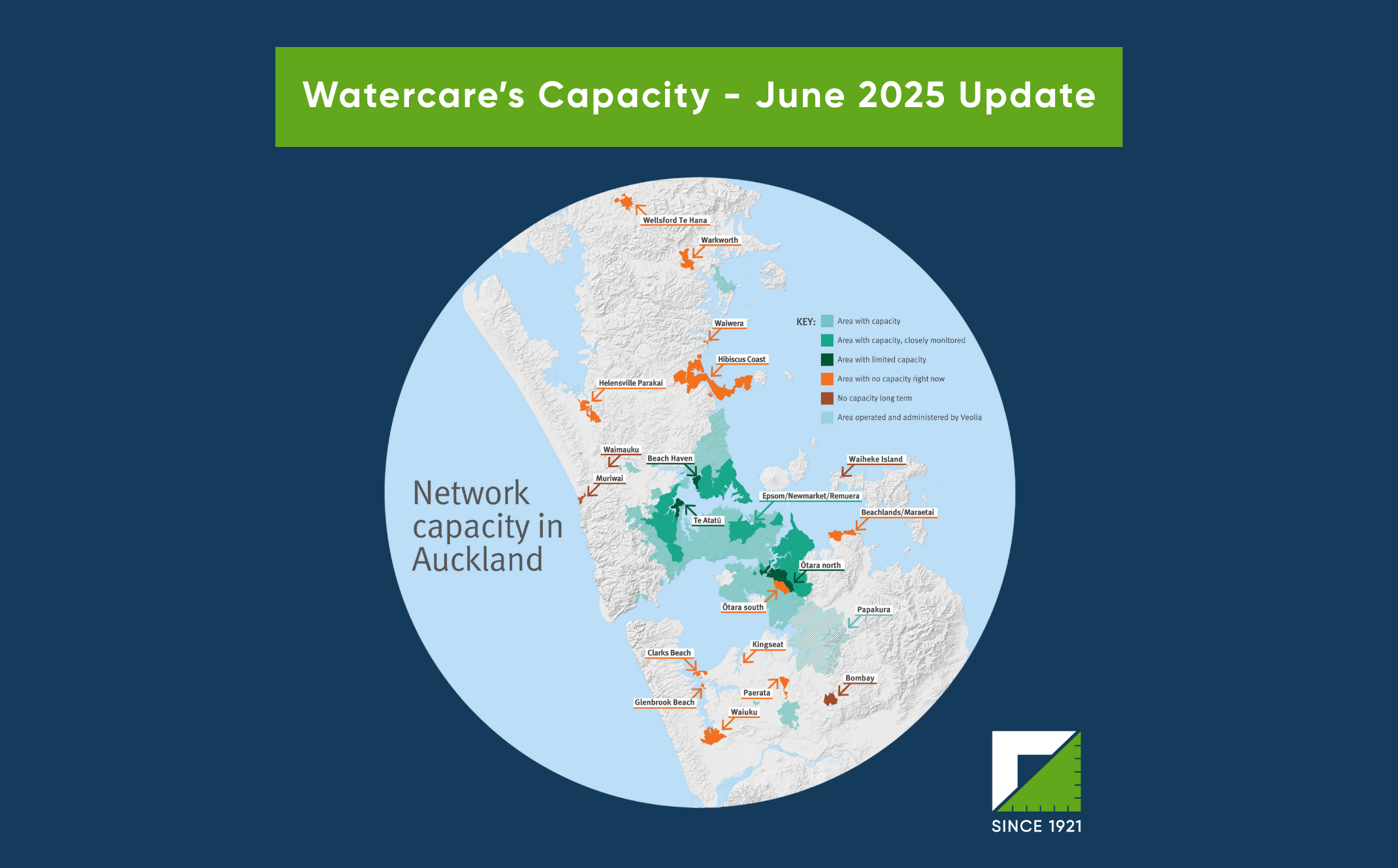Over the past several months, we’ve noticed an increase in enquiries about cross lease conversions from property owners. This heightened interest reflects Auckland property owners’ growing awareness of the substantial benefits that converting to fee simple titles can deliver. In response to the numerous questions we’ve received, we’ve prepared this comprehensive guide to help you understand the conversion process and make informed decisions about your property.
Cross Leases Explained: What You Need to Know
If you own a cross lease property, you’re part of an ownership arrangement that was quite popular between the 1960s and 1980s. Under this system, you own an undivided share of the land and lease your building from all the other owners under what’s typically a 999-year lease. This ownership structure gained popularity as a mechanism to circumvent subdivision restrictions of that era. However, cross leases are now widely recognised as outdated and restrictive; and they now create more problems than they solve.
Common Cross Lease Limitations
Cross lease ownership presents several significant constraints that can impact both your property’s value and your ability to enjoy full ownership rights:
Unanimous Agreement Requirements: Any modifications to your property—whether extensions, new structures, or significant alterations—require unanimous consent from all cross lease owners. This can create frustrating delays and complications, particularly when neighbours have differing views on proposed changes.
Defective Title Risks: When the flats plan doesn’t accurately reflect the current state of the property, you may face “defective title” issues. These discrepancies can significantly complicate property sales and reduce market value, as potential buyers and their solicitors identify these risks during due diligence.
Limited Appeal to Buyers: Many potential purchasers simply avoid cross lease properties because of these complications. This reduced buyer pool can impact both your sale price and how long your property sits on the market.
Why Conversion Makes Financial Sense
Converting to a fee simple (freehold) title eliminates these restrictions entirely, granting you complete control over your land and dwelling. Beyond the obvious benefits of unrestricted ownership, conversion typically delivers substantial financial returns. Industry estimates suggest property value uplifts of 7-18% following successful conversion to fee simple titles. When you consider the conversion costs against this value uplift, the investment often pays for itself whilst providing ongoing benefits.
The Cross Lease Conversion Process: A Step-by-Step Guide
Converting your cross lease might seem daunting, but breaking it down into clear steps makes the process much more manageable:
Step 1: Getting Everyone on Board
Your first task is securing agreement from all the other cross lease owners. This might involve some negotiation about who pays what, but remember that everyone benefits from the increased property values that conversion brings. This initial stage requires open communication and negotiation. Success here often determines the smoothness of the entire process.
Step 2: Assembling Your Professional Team
The complexity of cross lease conversions necessitates engaging qualified professionals with specific expertise in this area. You’ll require a solicitor experienced in cross lease conversions to guide you through the legal requirements. You’ll also need to engage a company that understands the surveying, consenting and engineering requirements of the process. This is where our team at Tripp Andrews comes in.
These professionals will guide you through the technical requirements and ensure everything is done correctly.
Step 3: Site Survey and Scheme Plan Preparation
A comprehensive property survey is conducted to establish accurate boundaries and identify any shared services or access requirements. The surveyor then prepares a detailed scheme plan showing the proposed new boundaries and any necessary easements for shared driveways, utilities, or other services.
Step 4: Subdivision Consent Application
The conversion is technically classified as a subdivision under the Resource Management Act 1991, requiring formal application to council for subdivision consent. This stage involves detailed documentation and may require additional supporting information depending on your property’s specific circumstances.
Step 5: Council Review and Physical Works
Council assessment may identify required infrastructure upgrades before approval can be granted. Common requirements include separate water meters, improved drainage systems, or modifications to shared driveways. These works must be completed and certified before proceeding to the next stage. Any physical work will usually represent the highest cost in the process, but the good news here is that most of the time, no physical work is required to complete the conversion process.
We will advise during Steps 3 and 4 if we think physical works will be required. If council indicates that physical works may be required during this step, we will push for this not to be the case on your behalf.
Step 6: Land Transfer Survey and LINZ Approval
Following council approval, a land transfer survey plan is prepared, physically pegging the new boundaries. This plan is then submitted to Land Information New Zealand (LINZ) for final approval of the new title boundaries.
Step 7: Sorting Out the Legal Side
Your solicitor handles the complex task of cancelling your old cross lease titles and creating your new fee simple titles. If you have a mortgage, your bank will also need to update their records and provide consent for the changes.
Step 8: Receiving Your New Titles
Once LINZ gives final approval, you’ll receive your new freehold titles—congratulations, you now have complete ownership of your property!
Timing Your Conversion
How Long Will It Take?
Most cross lease conversions take somewhere between 6 and 12 months from start to finish. The exact timeframe depends on how complex your property situation is, how quickly the council processes your application, and whether any significant physical works are required.
Can You Speed Things Up?
In some circumstances, particularly if you’re planning to sell your property, it may be possible to expedite the process to around 4-5 weeks. However, this depends on your property meeting specific criteria and may not be suitable for all situations.
What Might Cause Delays?
Several factors can extend your conversion timeframe. Disagreements between owners, complex infrastructure requirements, or council processing delays can all add time to the process. The key is identifying potential issues early and working proactively to address them.
Investment Considerations
Cross lease conversion costs vary based on property complexity and required upgrades. Understanding the cost components helps you budget effectively for the process.
What Will You Pay For?
Survey and Planning Work: Expect to invest $10,000-$15,000 plus GST per title for professional surveying, planning, and engineering documentation.
Council Fees: These vary but represent a significant portion of your total costs, covering the council’s processing and approval of your subdivision application.
Legal Services: Your solicitor’s fees will depend on how complex your current title structure is and whether you have mortgages that need updating.
Physical Improvements: If the council requires infrastructure upgrades, these costs can vary significantly depending on what’s needed. This might include separate utility connections, drainage improvements, or access way modifications. As mentioned earlier, we will help you avoid the need to undertake physical works as part of the cross lease conversion process.
Total Investment Estimate
For most properties, you can expect total conversion costs of $20,000-$25,000 plus GST per title, which includes all professional, council and legal fees. Whilst this represents a substantial investment, it’s important to weigh this against the 7-18% property value increase that conversion typically delivers.
Key Benefits of Converting to Fee Simple
Increased Property Value
Properties with fee simple titles consistently sell for higher prices than their cross lease equivalents. Buyers appreciate the certainty and flexibility that comes with unrestricted ownership.
Freedom to Develop or Improve Your Property
Once you have fee simple title, you can renovate, extend, or develop your property without needing approval from your neighbours. You’ll still need to meet council requirements, but you won’t have to navigate complex neighbour negotiations for every change.
Clear, Uncomplicated Ownership
Conversion eliminates the risk of title defects and disputes that can complicate cross lease ownership. Your ownership rights become crystal clear, which benefits both you and any future buyers.
Easier Sales Process
When it comes time to sell, you’ll appeal to a much broader range of buyers. The simplified ownership structure removes barriers that often deter purchasers from considering cross lease properties.
Is Conversion Right for You?
Converting your cross lease to fee simple represents more than just a change in your title structure—it’s an investment in your property’s future value and your freedom as a property owner. Whilst the process requires coordination and professional expertise, most Auckland property owners find the benefits far outweigh the initial investment and effort required.
The key to a successful conversion is working with experienced professionals who can guide you through each step whilst ensuring all regulatory requirements are met efficiently and correctly.
If you’re considering conversion for your property, we’d be happy to discuss your specific situation and provide personalised advice about the process and costs involved. Every property is different, and understanding your unique circumstances is the first step towards making the right decision for your investment.






